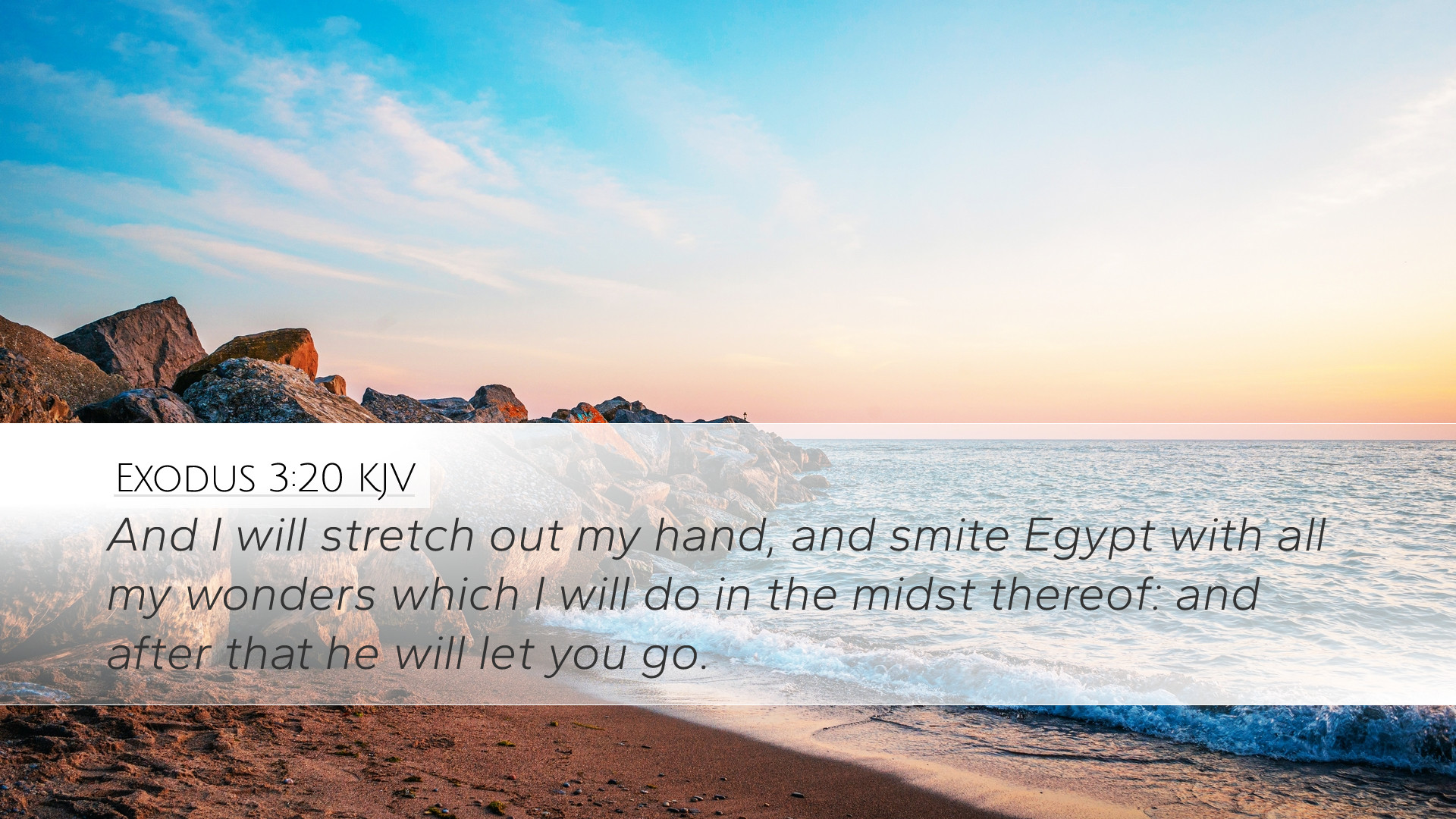Exodus 3:20 - Commentary Overview
This verse marks a critical moment in the narrative of the Exodus, where God declares His intent to perform mighty acts to secure Israel's liberation from Egypt. Understanding this verse requires a holistic view of the context of the entire chapter and the theological implications of God's promise of deliverance.
Verse Text
Exodus 3:20 (KJV): "And I will stretch out my hand, and smite Egypt with all my wonders which I will do in the midst thereof: and after that, he will let you go."
Context and Setting
The setting of Exodus 3 is crucial for understanding the significance of this verse. It occurs as Moses encounters God in the burning bush, a pivotal moment that introduces the divine mission for Israel's deliverance.
- Historical Context: Israel has been in bondage in Egypt for over 400 years. This suffering lays the groundwork for the miraculous intervention described in this verse.
- Theological Context: The covenantal promise made to Abraham, Isaac, and Jacob finds expression in God’s commitment to rescue His people.
Theological Insights
Exodus 3:20 encapsulates several theological themes that are significant for both contemporary readers and scholars.
- The Sovereignty of God: The active role God plays in deliverance underscores His sovereignty over nations and rulers. Albert Barnes notes that God’s hand will directly oppose Pharaoh's obstinate heart.
- Divine Power and Signs: The "wonders" refer to the miracles that will punctuate the plagues. Adam Clarke emphasizes that these acts serve not only to liberate but to display God's omnipotence.
- Expectation of Opposition: The phrase "he will let you go" implies resistance. Matthew Henry comments on how God must empower Moses and His people to stand firm in faith amid impending confrontation with Egyptian power.
Exegesis and Interpretation
The mechanics of God’s deliverance involve both His active intervention and His comprehensive strategy to bring judgment upon Egypt while preserving His people.
- "Stretch out my hand": This phrase denotes a powerful and deliberate action. It illustrates God’s willingness to act decisively for Israel's sake. Barnes notes that the stretching out of God's hand suggests His authority exerted upon Egypt.
- "Smite Egypt": The infliction of plagues seeks to demonstrate God's authority and provoke awe. The use of the term "smite" speaks to the harshness of the impending judgments, as emphasized by Clarke.
- "All my wonders": These wonders serve as signs, pointing to God's initiative in history. Each plague can be seen as both a punishment for the Egyptians and a lesson for Israel in God's sovereignty.
Practical Application
This verse has profound implications for faith communities today. Understanding God's intervention in history encourages believers to trust in His sovereign plans.
- Faith in Deliverance: Just as Israel was assured of God’s powerful intervention, modern believers can hold onto the promise of deliverance from sin and oppression.
- Awareness of God's Presence: The assurance of God's nearness through His acts of salvation invites deep worship and reliance on Him amid tribulation.
- Call to Action: Like Moses, Christians are called to engage with the world, advocating for justice and liberation through the gospel.
Conclusion
Exodus 3:20 stands as a testament to God's dynamic involvement in the world. It reinforces essential themes of sovereignty, power, and the certainty of divine promises. For pastors, students, and theologians, it serves as a foundational scripture that calls for assurance in God's ultimate plan for redemption and liberation.


